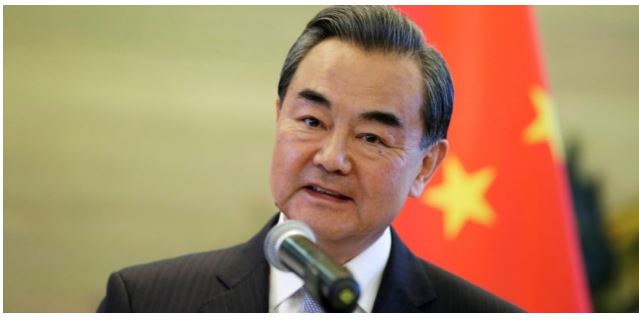China’s announcement to appoint a special envoy for the Horn of Africa region affirms its intent to play a more strategic role as a security actor on the continent, experts said.
During his visit to the region earlier this year, Chinese Foreign Minister Wang Yi announced Beijing will appoint a special envoy for the Horn of Africa. Although, he did not mention what exact role the envoy would partake, he said China will help Eritrea to develop its coastline.
Faith Mabera, a senior researcher at the Institute for Global Dialogue, a foreign policy think-tank in South Africa’s capital Pretoria, told Anadolu Agency the announcement confirms China’s determination to engage in a more strategic role as a security actor on the continent, leveraging its evolving experience in conflict management, drawing on its contribution to multilateral peacekeeping and in mediation.
There are many conflicts in the Horn of Africa with Somalia battling the al-Shabaab terror outfit and the Ethiopian government battling the rebel forces from the northern Tigray region with Eritrea aligned on Prime Minister Abiy Ahmed’s side in the conflict.
“Taking stock of Wang Yi’s recent visit, one begins to get a sense of the centrality of personal ties and mutual obligations at the center of China’s diplomacy with Africa,” Mabera said.
“This attests the importance that the Chinese accord to Africa in their diplomatic engagements, but also points to the prioritization of security on the foreign policy agenda,” he added.
“Specifically, the imperative of securing crucial maritime chokepoints in the Red Sea, aligned to the view of ports as prime real estate,” she said, noting that the Chinese port in Djibouti is important in this regard.
Wang’s announcement in January came at a crucial time when the US envoy to the Horn of Africa was heading to Ethiopia to resolve a year-long conflict.
“China wants to overtake the continent from traditional western friends and old colonial masters,” said Abdurahman Sheikh Azhari, director of the Somalia-based think tank Centre for Analysis and Strategic Studies, adding China was providing cheaper and more accessible products to the continent compared to costly western manufactured goods.
He said some of the products include military hardware.
He said the Chinese base in Djibouti is providing sophisticated weapons to African markets, a claim Anadolu Agency could not independently verify.
CHINESE LOANS A DEBT TRAP?
Azhari said Africa’s traditional partners, including Europe and the US, are worried about China’s expansion in Africa, and the growing interest of African nations in doing business with China which also offers long-time development projects to the continent.
Azhari, however, said China may be trapping African countries into debt by offering them heavy loans they may not be able to repay. He said in the end, China could seize strategic national key points of defaulting nations such as airports, seaports and even land.
Other experts warn that in the long run, China might also start influencing political and economic decisions of certain African countries seeking development aid or those that have defaulted despite it currently having a non-interference policy.
China, however, denies that its loans to the continent have political strings attached.
“China does not interfere in Africa’s internal affairs and does not impose its own will on Africa,” President Xi Jinping told leaders at a Forum on China-Africa Cooperation (FOCAC) in 2018 as he offered Africa $60 billion in new development financing, in addition to another $60 billion Beijing had offered to the continent in 2015.
Dr. Mustafa Mheta, a senior researcher at the Media Review Network, a Johannesburg-based think tank, told Anadolu Agency that he does not think China wants to trap Africa into debt.
“Those against China have been peddling this narrative, giving China a negative image. Beijing has not officially said they will take over infrastructure from defaulting countries,” he said in a phone interview.
“The time for western influence and power in Africa is over,” he added.
He said some African leaders are failing to pay Chinese loans because of China’s soft approach and loans which have “little or no strings attached.”
“In the foreseeable future, China will continue to depend on African resources,” he said, and so good relations will continue.

















